
OR
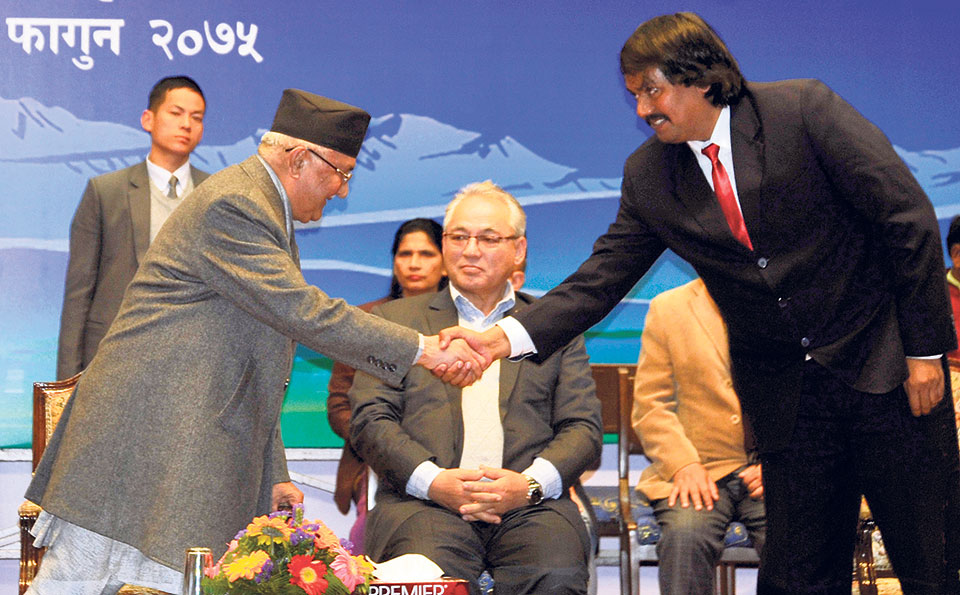
CK Raut’s party can take up irrigation as main agenda for ending extreme poverty in Madhesh and turning agriculture into the pivot for region’s growth and modernization
I recall an incident in Janakpur some 35 years ago, in 1985, when I learned of one terrible incident that had shaken up the city. The incident relates to Dr Laxmi Narayn Jha, a practicing physician in Janakpur where his parents also lived. Some months earlier, I was told, Jha had been arrested from his home by a contingent of Nepali Army men and taken to the Army barrack in Perakauli, about ten kilometers south of Janakpur. It was daytime in mid-morning and a crowd of some dozens people had gathered at the place of arrest. The crowd just watched the arrest but didn’t intervene which, probably, would have been a normal reaction of people who knew why Jha was arrested.
I visited Jha’s parent’s home in mid-town Janakpur where he lived and carried his practice and enquired them about the arrest. They pointed me to a Nepal map hung on the wall, with a horizontal red line drawn on the lower part of the map. They told me that their son had drawn that line separating Madhes part of Nepal from rest of the country which Jha, reportedly, told his friends is a separate region of the country because of its geography and demography. The line on the map he had drawn showed essentially the same division of the country’s land area that Madhesi leaders currently envision— of a combined 22 districts bordering India.
No one said that Jha had spoken the idea of division to a crowd or had distributed leaflets to this effect. He shared his idea with just a few of his close friends, sometimes to visitors to his home but didn’t do advocacy or made public speeches for separation of Madhes.
When the security officials heard of Jha showing Madhes as a separate territory, they smelled rat and after a few days of getting more information about his conduct, a contingent of military officers turned up at his house, arrested him, and took him to the military barrack. After some weeks of arrest, his parents got the news that their son was dead—shot in military custody.
Lucky Raut
In the context of this history, Dr CK Raut should consider himself truly lucky to be still alive, after creating so much of convulsions with his advocacy of making Madhes a separate country. During the early days of his advocacy starting in 2011, Raut could attract very few supporters, in part because of the story of Dr Jha a quarter century ago but, after a year or so, his crowd strength grew and slowly took momentum. The police was alerted of Raut’s activities and then they intervened in his meetings, arresting him and his active followers, holding them in detention but each time the Supreme Court would release them on constitutional grounds—that Raut was using his freedom of speech and engaged in no violent activities.
This arrest and release episode occurred more than a dozen of times until the last time when Raut had spent some months in jail just prior to him signing of agreement with the government to the effect that he would drop separation and independence theme from his political speeches and, if he wanted to continue his politics, he would do this in the confines of rules and regulations under which other political parties operated.
Following the agreement, Raut and his followers formed a new party called Janamat Party—which can loosely be translated as ‘Public Opinion Party.’ It isn’t clear what is the intent behind such naming but most observers have come to understand it to mean a referendum on the status of Madhes, not immediately but at some future date.
It is not yet confirmed if Raut has spoken of the referendum option but the government will be very sensitive if he has. Government will construe any reference to referendum—associated with the naming of Raut’s party or his advocacy of referendum—as a betrayal of the peace deal and may likely withdraw from the agreement.
Agenda to pursue
It is then essential that Raut interprets Janamat differently for it to mean just a movement that will work for winning public mandate for his party on the basis of the quality of its programs and not risk confrontation by taking a position on the divisive issues, including referendum.
Such programs would include economic as well as social items with special emphasis on their relevance for Madhesi people who, as until now, have been kept outside of the national mainstream that deprives them of much of the government benefit programs and opportunities which non-Madhesis can access as natural right. The Janamat Party would also work to equalize opportunities for everyone in a way that distributes benefits across the board and make them available to everyone on an equitable basis.
With this kind of premise focusing not just on Madhesis but on all of the disadvantaged groups in the country, the Janamat Party needs to emphasize making changes in just two areas—improvement of economic conditions and enforcement of equal rights. The equal rights issue will present the most challenging task for Janamat Party to transform it into a campaign issue and for the government to accommodate it. Equalizing of opportunities would essentially mean a redistribution of government jobs and programs that, in most part, has been closed to Madhesi citizens with no significant change made despite decades of liberalization efforts.
Economic improvement objectives would focus on modernization of agriculture which, despite other changes taking place in the economy, continues to be the lifeline for Madhesh population. The practical ways of inducing needed changes in agriculture will have to focus on just a few key items that have the promise of benefitting the maximum size area and cover most of the population. One such strategy will be to implement programs for making irrigation water available to all farmers to facilitate a year-round cultivation of their fields.
This objective has been expounded in all of the Five-Year plans over decades but, estimates show that less than 20 percent of arable acreage has access to irrigation water, most of it for one-crop seasonal agriculture. Raut’s party can take up the irrigation issue as its main agenda for ending the extreme poverty in Madhesh and turning agriculture into the pivot for region’s growth and modernization.
Enhancing trade
The other significant issue that Madhesi citizens face is the immense barrier of doing trade with India. With an open border between the two countries, Madhesis bear the heaviest burden of regulatory mechanism and export and import taxes that apply to bilateral trade. Especially since the bulk of import trade supplies essential consumer items for household use in Madhesh, restrictions on border trade impact on Madhesi population disproportionately more than elsewhere in the country. Estimates are not available but a household survey will show that border restrictions and taxes add at least one third to average cost of living in Madhesh and that trade restrictions erode the region’s comparative advantage for trading with India.
Raut’s agenda can include many other items that people may find attractive and new, vis-à-vis what other parties have to offer but the equal rights issues along with a focus on agriculture and trade would be easy for everyone to understand and they could clearly see how the proposed reforms envisaged by his party can improve their living conditions without waiting for years and decades.
Framing of the message of Janamat Party in this way will help create credence and trust for leadership of Raut in a more convincing manner than would a premise of referendum, separation, and independence that are more likely to return Raut back to prison and his followers subjected to brutal repression reserved for only those convicted of engaging in criminal activities against the state.
The author teaches Economics at NOVA College, Virginia
sshah1983@hotmail.com
You May Like This
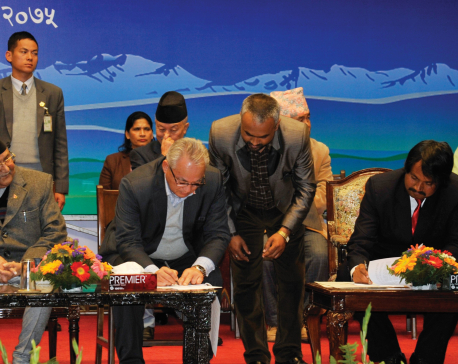
Beginning of new inning
Ineptitude of the subsequent governments had propelled CK Raut to become a prominent leader of Madhes from an insignificant figure Read More...

Code will be the government
There is a need for one monopolistic fast-learning artificial intelligence holistically ruling the planet. With AI, it will be possible... Read More...
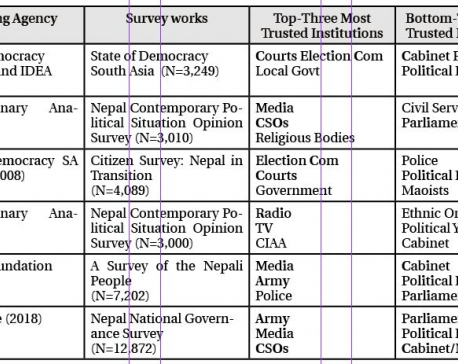
Symptoms of decay
Political parties, parliamentarians and government ministers feature as the most distrustful institutions in almost all surveys ... Read More...

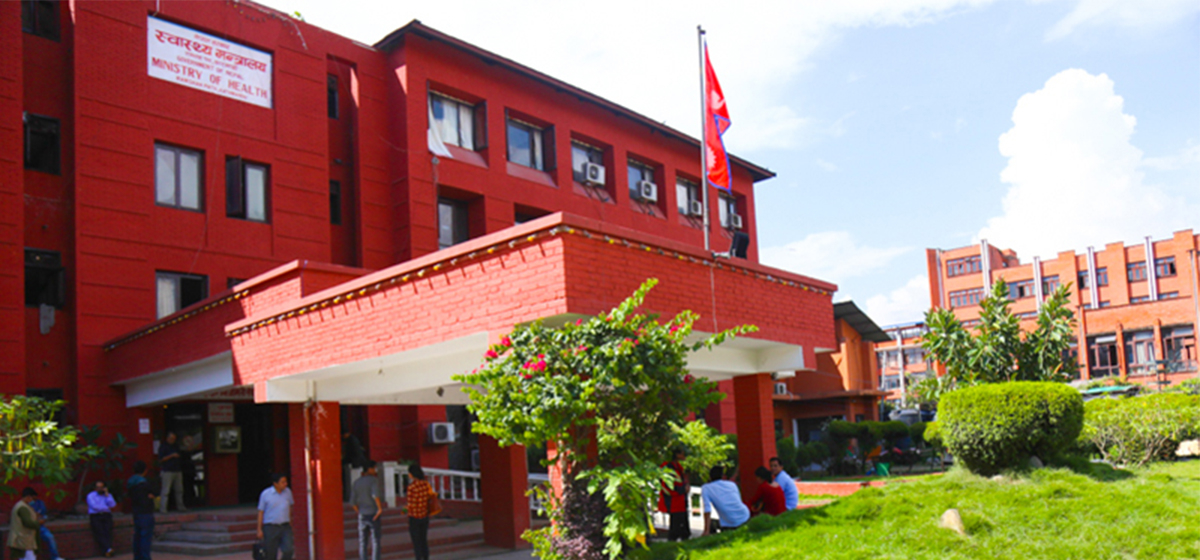
Just In
- In Pictures: Families of Nepalis in Russian Army begin hunger strike
- New book by Ambassador K V Rajan and Atul K Thakur explores complexities of India-Nepal relations
- Health ministry warns of taking action against individuals circulating misleading advertisements about health insurance
- UAE secures spot in ACC Premier Cup final, defeating Nepal by six wickets
- NC to boycott Gandaki Province Assembly, submits letter to Speaker
- 850 grams of gold seized from Indian national at TIA
- Rupandehi District Court orders to release Dipesh Pun on a bail of Rs 400,000
- Teachers’ union challenges Education Minister Shrestha's policy on political affiliation



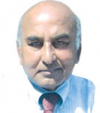








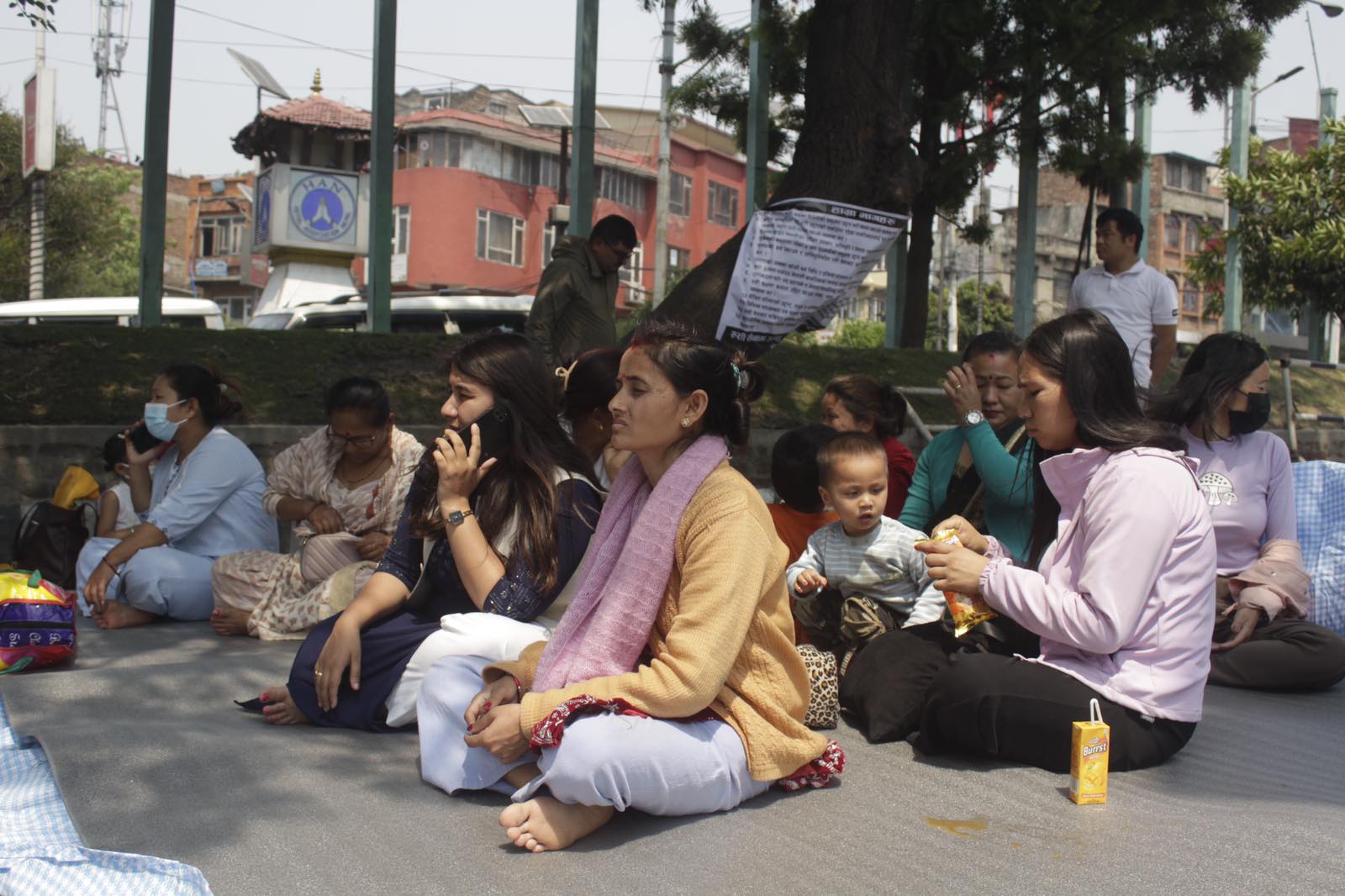
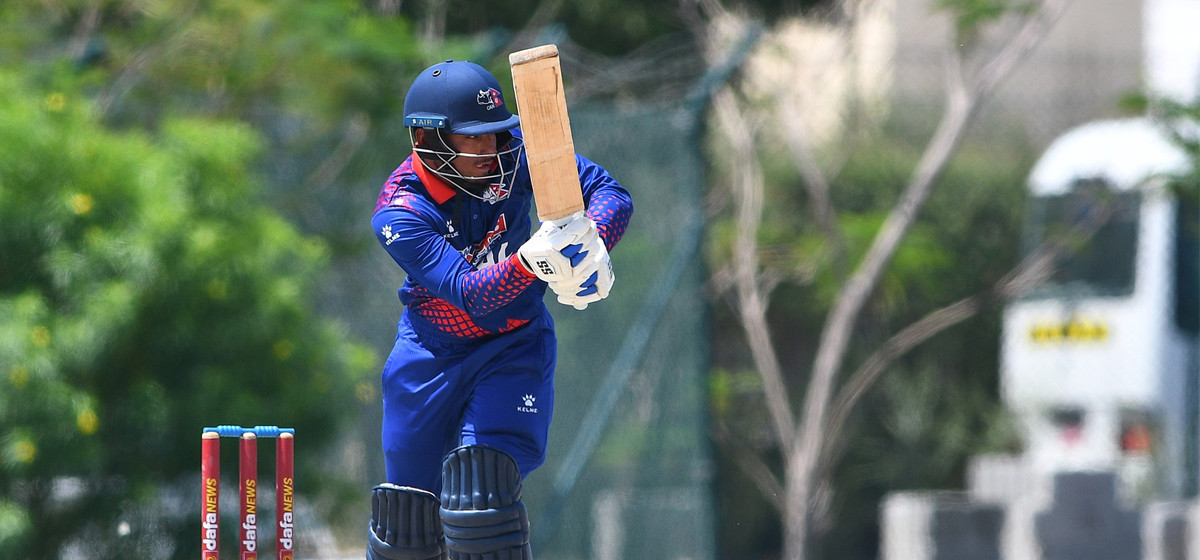
_20240311121839.jpg)


Leave A Comment